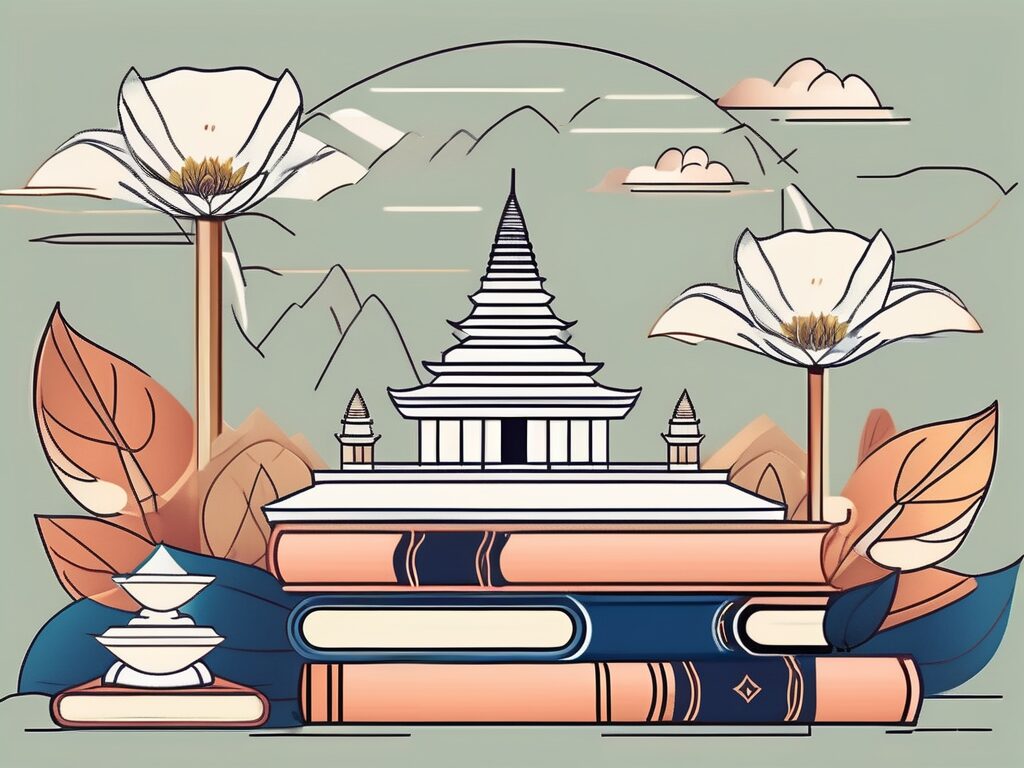Thailand, a country rich in cultural heritage and artistic traditions, offers a plethora of opportunities for those with a Master’s in Education. From teaching in schools to developing educational policies, there are numerous ways to contribute to the field of arts and humanities in this vibrant country. In this blog post, we will explore four distinct approaches that you can take to make a significant impact in Thai arts and humanities education.
1. Teaching in Schools
One of the most direct ways to contribute to arts and humanities in Thailand is by teaching in schools. With a Master’s in Education, you are well-equipped to deliver high-quality instruction in various subjects, such as history, literature, and art.
Thai schools, both public and private, are increasingly recognising the importance of arts and humanities in their curriculum. As a teacher, you can help shape young minds by introducing them to the rich tapestry of Thai culture and history. You can compare this to planting seeds in a garden – with the right care and attention, these seeds can grow into beautiful flowers that add colour and diversity to the landscape.
Moreover, teaching allows you to directly influence the next generation of Thai citizens, instilling in them a deep appreciation for their cultural heritage. This is akin to lighting a torch and passing it on, ensuring that the flame of Thai culture continues to burn brightly in the future.
2. Curriculum Development
Another approach to arts and humanities in Thailand with a Master’s in Education is through curriculum development. This involves designing and implementing educational programmes that promote a comprehensive understanding of arts and humanities.
Curriculum developers play a crucial role in shaping the educational landscape. They are like architects, drawing up blueprints for a building. The building, in this case, is the educational system, and the blueprints are the curriculum. A well-designed curriculum can provide a strong foundation for students’ learning, just as a well-designed building can stand the test of time.
As a curriculum developer, you can incorporate elements of Thai culture and history into the curriculum, ensuring that students gain a well-rounded understanding of their heritage. This is similar to weaving a tapestry – each thread represents a different aspect of Thai culture, and when woven together, they create a beautiful and intricate picture of Thai society.
3. Educational Policy Making
With a Master’s in Education, you can also contribute to arts and humanities in Thailand through educational policy making. This involves creating and implementing policies that promote the study of arts and humanities in schools.
Educational policy makers are like ship captains, steering the course of education in the country. They set the direction and pace of education, ensuring that it aligns with the country’s goals and values. In the context of arts and humanities, this means creating policies that encourage the study of Thai culture and history.
As an educational policy maker, you can advocate for the importance of arts and humanities in the Thai educational system. This is akin to being a voice in the wilderness, calling out for change and progress. With your expertise and passion, you can help bring about a renaissance in Thai arts and humanities education.
4. Research and Publication
The final approach to arts and humanities in Thailand with a Master’s in Education is through research and publication. This involves conducting studies on various aspects of Thai culture and history, and publishing your findings to contribute to the body of knowledge in the field.
Researchers and authors are like explorers, venturing into uncharted territories in search of new knowledge. They delve deep into the past, uncover hidden truths, and bring to light the richness of Thai culture. Their work not only enriches our understanding of Thai society, but also helps shape the future of arts and humanities education in the country.
As a researcher or author, you can contribute to the discourse on Thai arts and humanities, shedding light on lesser-known aspects of Thai culture and history. This is similar to being a lighthouse, guiding others through the darkness and illuminating the path ahead. With your research and publications, you can help chart a new course for Thai arts and humanities education.
In conclusion, there are numerous ways to contribute to arts and humanities in Thailand with a Master’s in Education. Whether you choose to teach, develop curriculum, make policies, or conduct research, you can make a significant impact in this vibrant field. So, why not take the plunge and embark on this exciting journey? The world of Thai arts and humanities awaits you.
Advance Your Impact in Thai Arts and Humanities Education
Ready to elevate your role in shaping the future of arts and humanities education in Thailand? The IQTS at UWE offers the International Qualified Teacher Status (iQTS) Programme, designed to enhance your professional development and ensure you meet the high standards required by international schools. By joining our programme, you can increase your chances of interview callbacks, accelerate your career progression with a significant salary boost, and connect with a global community of educators. Embrace the opportunity to become more adaptable to international curricula and balance your professional growth with your current commitments through our flexible online study options. Make Your Next Step towards a transformative educational journey with the iQTS at UWE.

